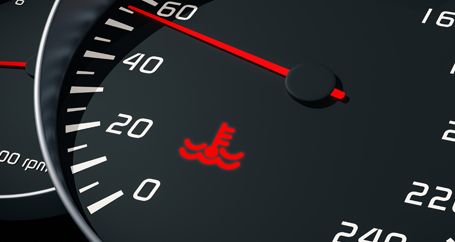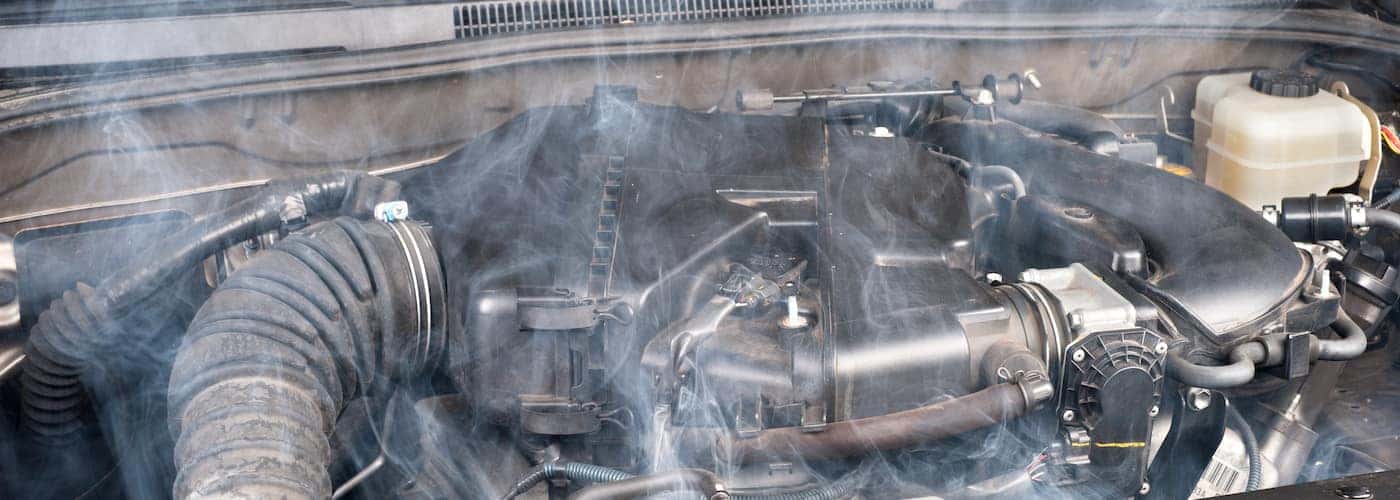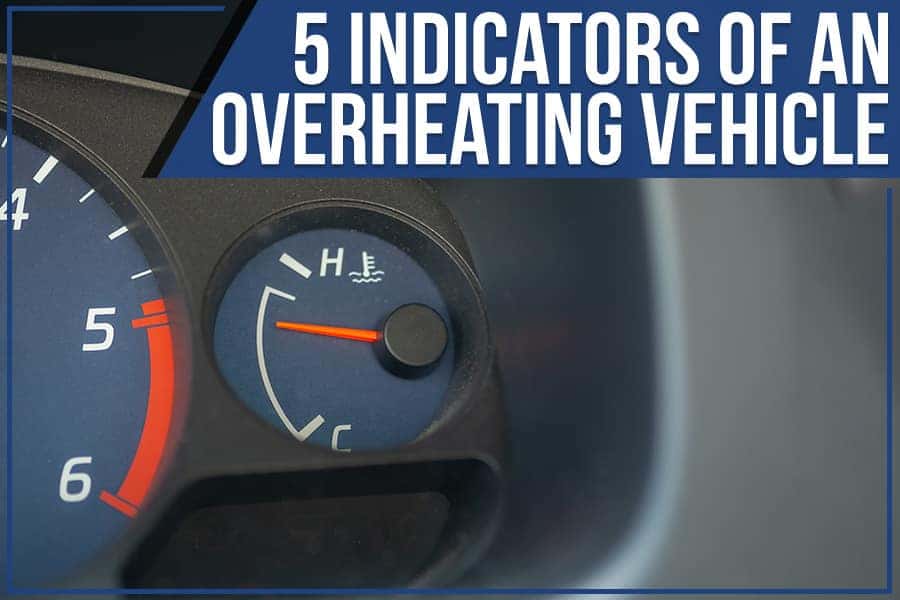
To know if your truck is overheating, look for a temperature gauge reading in the red zone or a dashboard warning light indicating high engine temperature. Additionally, you may see steam or smoke coming from under the hood.
Overheating can lead to serious engine damage, so it’s important to address it promptly. Signs like unusual smells, sounds, or a sizzling appearance under the hood can also indicate overheating. Taking quick action, such as checking coolant levels, fixing leaks, and ensuring proper radiator function, can prevent further damage and keep your truck running smoothly.
Being proactive in detecting and resolving overheating issues is crucial to maintaining the health of your vehicle.

Credit: www.farmers.com
Navigate As You Want:
Signs Of Overheating
If your truck is overheating, there are several signs you should look out for. The first sign is the temperature gauge or warning light on your dashboard. If you notice the needle reaching the hot zone or the light turning on, it could indicate overheating. Another sign is steam or smoke coming from under the hood, which suggests excessive heat. Additionally, if you feel the hood of your truck and it is excessively hot, it could be a sign of overheating. These signs should not be ignored and prompt action should be taken to prevent potential damage to your truck’s engine.
Causes Of Overheating
If you suspect your truck is overheating, there are a few common causes to consider. These include low coolant levels, coolant leaks, issues with the water pump or thermostat, engine damage, and a clogged radiator or cooling system. It’s important to address these issues promptly to avoid further damage to your vehicle’s engine.
| Coolant Leak | Check for any visible leaks in the cooling system and repair promptly. |
| Water Pump Issues | Ensure the water pump is functioning correctly to circulate coolant effectively. |
| Engine Damage | If the engine overheats, it can cause severe damage to components. |
| Thermostat Problems | Check the thermostat for malfunctions that may lead to overheating. |
| Cooling System Malfunctions | Regularly maintain the cooling system to prevent overheating issues. |
How To Diagnose Overheating
If you suspect your truck is overheating, look for warning signs such as a rising temperature gauge, steam from under the hood, or a sweet smell of coolant. Pull over immediately, turn off the engine, and let it cool down.
Check the coolant level and look for any leaks in the cooling system.
| 1. Check the coolant level and add if low |
| 2. Look for leaks in the cooling system and fix them |
| 3. Clean the radiator and cooling fans of any debris |
| 4. Inspect the drive belt for wear and tear, replace if needed |

Credit: www.hendrickatlanta.com
Preventing Overheating
When it comes to preventing overheating in your truck, regular maintenance is crucial. Proper coolant levels should be maintained to ensure the engine stays within a safe temperature range. Monitoring the temperature gauge regularly can help identify any potential issues before they escalate. In addition, cleaning any debris from the radiator and cooling fans can aid in preventing overheating. Inspecting the drive belt for wear and tear is also essential, as a worn-out belt can lead to engine overheating. Keeping up with these maintenance practices can significantly reduce the risk of your truck overheating and experiencing engine damage.
Steps To Take If Your Truck Overheats
• If your truck overheats, the first step you should take is to stop the vehicle. This will help prevent any further damage to the engine.
• After stopping the vehicle, the next important step is to turn off the engine. This will allow the engine to cool down and prevent any additional overheating.
• While the engine is cooling down, you should check the coolant level in the radiator. If the coolant level is low, you can add more coolant to prevent further overheating.
• Additionally, you should inspect for leaks in the cooling system. Any leaks should be repaired as soon as possible to prevent future overheating issues.

Credit: www.jerryulmchryslerdodgejeepram.com
Frequently Asked Questions Of How Do You Know If Your Truck Is Overheating
What Are 3 Simple Things To Check If Your Car Is Overheating?
To check if your car is overheating, first, monitor the temperature gauge for high readings. Secondly, inspect for coolant leaks under the vehicle. Lastly, ensure the radiator and cooling fans are free from debris.
What Happens When A Truck Overheats?
When a truck overheats, it may lead to engine damage or even seizure if coolant is low. Inspect and add coolant, check for leaks, clean radiator, and replace worn parts promptly.
What Does An Overheating Engine Feel Like?
An overheating engine feels hot to the touch, with steam or smoke under the hood. You may also notice unusual smells or sounds.
How Do You Fix An Overheated Truck?
To fix an overheated truck, follow these steps: 1. Check coolant level and add if needed. 2. Inspect and repair any leaks in the cooling system. 3. Clean debris from radiator and cooling fans. 4. Check and replace worn or damaged drive belt.
5. Completely drain and replace radiator fluid, following manufacturer’s specifications. Inspect and replace seals, gaskets, and hoses if necessary. Ensure proper disposal of used radiator fluid.
Conclusion
Knowing the signs of an overheating truck is crucial for preventing potential engine damage. Keep a close eye on the temperature gauge, look for coolant leaks, and regularly maintain the cooling system to avoid overheating problems. Stay proactive by addressing any issues promptly to prevent costly repairs in the future.





